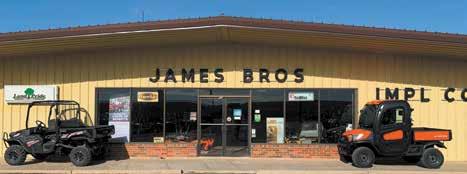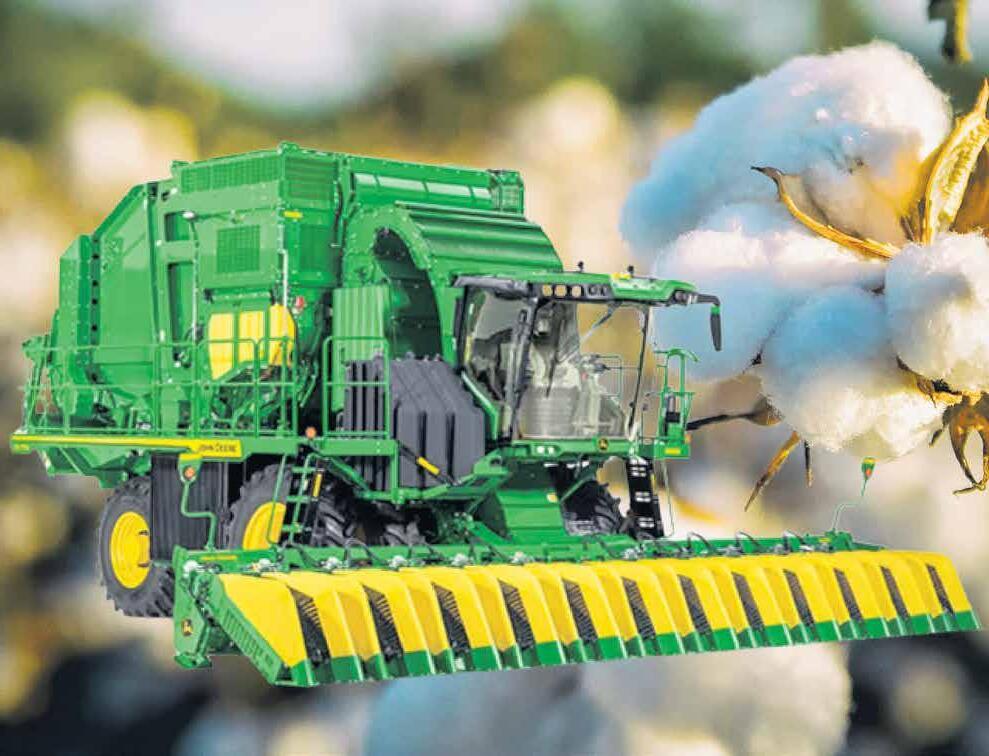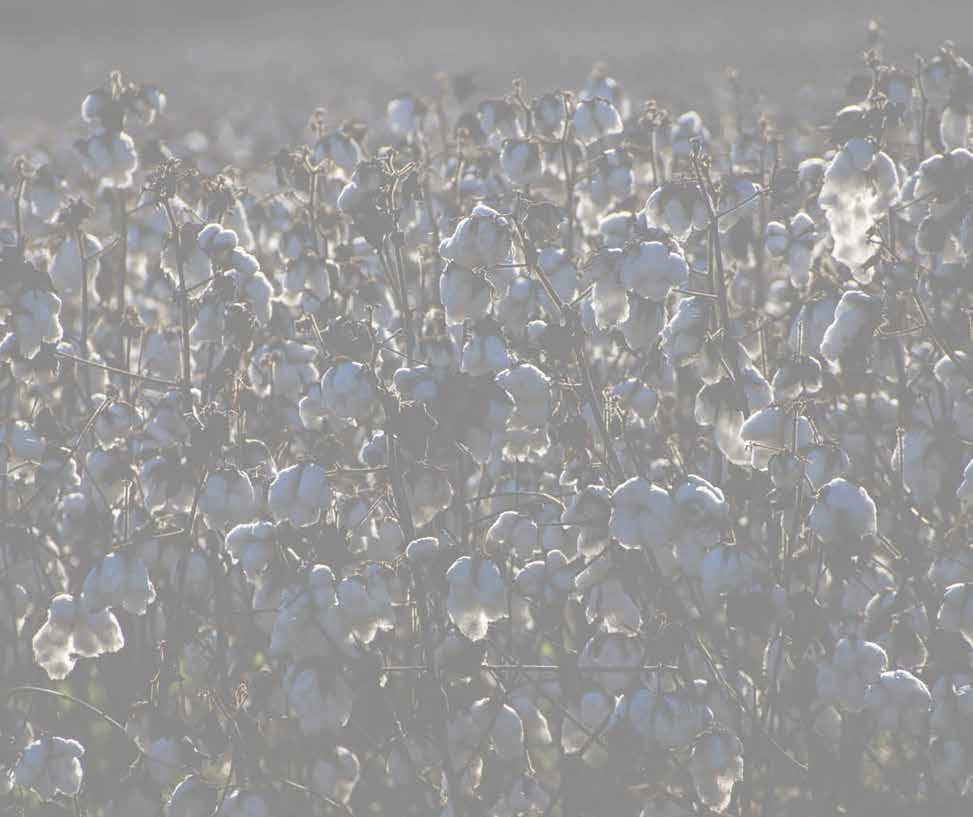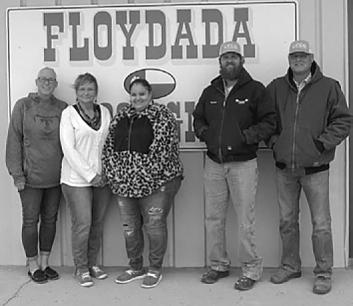








































TERESA YOUNG Special to the Herald
Though the ginning season has just begun, leaders at area cotton gins are cautiously optimistic of this year’s results. While some dryland fields have already been declared a loss, irrigated land has ginners more positive.
“We’ve got a mixed bag right now. Some of the early season cotton is from lighter water and didn’t get enough irrigation, and we didn’t get enough rainfall to help. Some fields are irrigated but they need some help from the good Lord to help. Some are harvested but the quality is poor,” noted Phillip Kidd, vice president and chief operating office for Windstar, Inc. “We have had one irrigated farm harvested, and the yield is higher than expected and the grade is excellent. So it’s mixed.”
Kidd, who also is general manager at D&J Gin
in Lockney, one of Windstar’s partnership properties with local growers, said most growers are ready to harvest and the recent humid, cooler temps have only slightly delayed that process. But the lion’s share of what farmers can do for their crop is already done.
“I think our season will progress rapidly from here on,” Kidd said. “Everything is ready to harvest and when they are ready to get to it, it will get harvested.”
With the wide array of gins under whole or partial ownership of Windstar, the cotton harvest usually varies by location of the acreage and the rainfall received there. Kidd said many dryland farmers are taking the insurance loss on crops that just haven’t produced due to continued drought conditions. And while he said they can’t fault the farmer for minimizing his loss and taking the better deal
financially, Kidd said the system does not help the overall farming economy since that cotton never enters the picture.
“There should be a compensation for harvesting all the way and letting it contribute to the economy. But it’s labor and hours on machines that are pretty expensive, so it’s a math equation whether you are better off to do it or not,” Kidd explained. “These guys pour their heart out to make a crop, then get to the end of the year and are seeing it was not profitable. They would much rather make a crop. But that’s the game they are in and they have to take it to survive.
“The ginning business doesn’t have that kind of coverage. We have to learn and adapt and get more efficient with labor so we can save money and stay in business,” he added.
Founded in 1978 by five Tulia farmers, Windstar includes several wholly owned properties, including Tule Creek Gin in Tulia, Edcot Gin in Edmonson and Johnson Gin in Silverton. They also have properties in partnership with area growers, including D&J Gin, Top of Texas Gin in Hereford, Adobe Walls Gin near Spearman and Lone Star Gin in Pampa. They also operate grain elevators in Tulia, Kress and Hale Center under the name Flatlands Grain.
Kidd said three heavy drought years in a row have done producers no favors, of course. The low market prices have added another hit to an already tough profession.
“We’re trying to make





some adjustments within the insurance realm to make it more beneficial for the producer to harvest the crop and warehouse it. That way it still benefits the overall economy. Acres taken out have no production on them, so no cotton gets ginned, warehoused or classed. And that impacts a lot of people,” he noted.
Educating the general public about how cotton impacts the local economy far beyond just the producers is one of Windstar’s goals as a player in the area industry. While the typical consumer sees rising prices at the grocery store and in most other

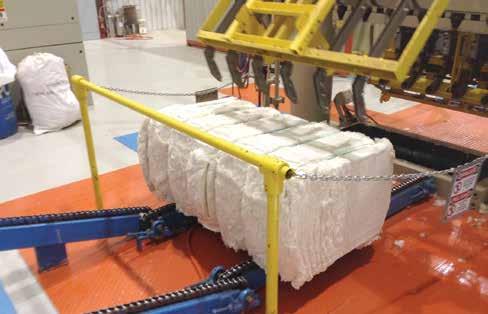
retailers, that same inflation has not affected the price farmers receive for cotton.
“I’ve been told that with just a one percent swing in market share, we couldn’t grow enough cotton to meet the demand. And that’s our biggest problem in this whole industry. The price is too low to compensate for the inflation of everything the farm has to deal with and the gins have to purchase to prepare,” he said.
“Everything has gotten

more expensive, but we’re still getting prices for our cotton that are the same as 50 years ago. They’re also losing water and facing drought, so it’s been more difficult. That’s a big stress on our economy, and I don’t think people realize how that impacts everyone personally.”
Since gins rely on the marketing of cotton seed to raise their profits, the potential lowered yields this season become an additional concern for Windstar. Kidd said

much of the local seed goes to area dairies who appreciate its impact on fat content in the milk they produce.
“The seed also contributes to the economy, being shipped and traded and feeding the cattle. When cotton fails, that seed doesn’t go into circulation,” he said. “Some years it is good, and some not so good. Ginning is separating lint from the seed and cleaning it, so the more we gin, the more seed we get.”




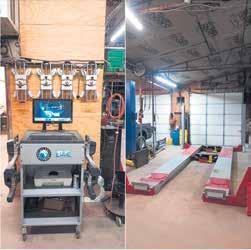










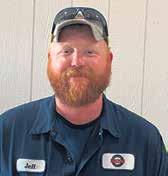

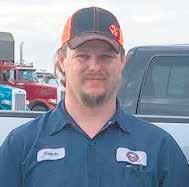












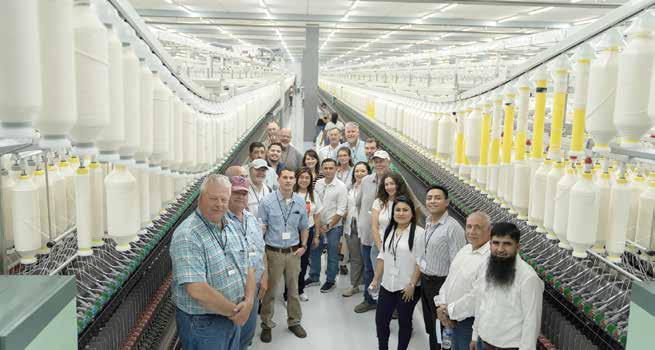
TERESA YOUNG
Special to the Herald
As the first cotton crops start to come in for the season, Todd Straley says growers are optimistic that at least this year will be an improvement over last year’s dismal showing. The managing partner for Quarterway Cotton Growers, Straley said dryland cotton will still struggle through the West Texas drought conditions.
“The yields at this point are more disap-
pointing than what we hoped would be there, but they’re a whole lot better than what we had this time last year,” said Straley, himself a grower in the Edmonson area.
“Some of these drip fields with ample irrigation look really good. They’re going to knock it out of the park.”
While the rainfall for the year has not been nearly as plentiful as farmers prayed it would be, Straley said there were pockets of the county that got more
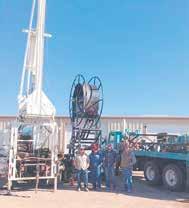
than others and those are proving more productive. He defined that as east of the Interstate and the swath from Highway 70 to Hale Center and back to Halfway.
His own farm’s experience is a great example of the hit-or-miss rainfall patterns that West Texas growers know all too well. Straley said his Edmonson land got only 13” total for the season, all in three rains and one about 5” alone.
“When you get those




big rains, you can’t keep it on the ground,” he said. “The way we farm today, we’re doing a much better job of keeping water on the field with no-till and cover crops, but a 5” rain is difficult to manage.”
Straley said the good rains that hit the area in the spring allowed growers to get a good crop started and had everyone optimistic early in the season. But the intense heat in August did some damage for sure. Many farmers have added
acreage to their holdings to compensate for the dwindling irrigation capacity. To grow yields, growers have to put down more seed.
“Our irrigation capacity is roughly a third of what it was five years ago,” said Straley. “We never complain about rain in the desert, but we try to stay positive when we can. And sometimes it’s hard to stay positive.”
While new technology in seeds and center pivots, along with field work techniques, have helped growers like Straley prevent the loss of precious water resources through evaporation, the repeated years of drought begin to impact growers mentally.
“With farming in general it can be a tough deal. Most of the time when these guys walk out of their house at 6:30 or 7 in the morning, they don’t see another human being until they get home around 10,” he said. “It really messes with your mind and your wellbeing. That’s being talked about more now

that it has been traditionally. And that’s the life a farmer leads a lot of the time. Even if you have farm help working for you, they’re out on a tractor doing their thing and very rarely are you working together.”
Compound that with the challenges of drought conditions and prices that are not on an upward trend and the stress of farming is even greater.
Straley also noted that the market is hovering in the upper 60s and lower 70s but the global players are changing the game greatly. Brazil and Argentina continue to grow more, and the US has been bumped from the top.
“Now we’re the fifth largest cotton producer, and it wasn’t that long ago we were No. 1 or No. 2. Now we’re No. 5, and a lot of that is Brazil. That’s all dry land and rain fed, and they can grow it cheaper than we can here without all the

















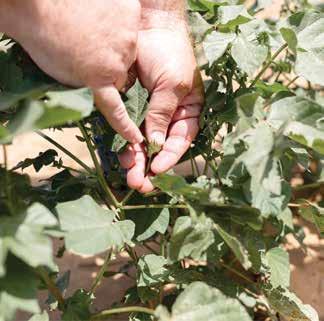
Continued from page 4 government regulations we have here,” Straley explained. “It’s a world market now, and that is becoming more evident over the past five years. We’re seeing a failure in a US crop not swaying the market near like it did.”
As an independently owned gin, Quarterway serves 68 growers and is continuing to grow. Part of that is their work with regenerative agriculture and sustainability practices that are attracting partnerships with brands and retailers around the world.
“We’re working directly with J. Crew, Lacoste, Inditex and other big brands in partnership, and that helps to pay fair value out to our growers,” Straley explained. “I’ve
had six brands that have come out this summer and walked the fields of our farms, looked at our crops and how we take care of them, and the rotation to limit our impact on the environment. We’re collecting data on our greenhouse gas emissions, and that helps those retailers meet the requirements they have to meet. We’re really the only gin doing stuff like that.”
Straley said the new innovative ways of farming are both important in terms of the impact on the environment as well as a way to counter the rising costs of inputs and the stagnant commodity pricing. This is helping them get better profits for farmers, and that’s a win-win for everyone.





TERESA YOUNG Special to the Herald
While Roger Rosales’ customers come from all walks of life, being part of a heavily agricultural community means he interfaces often with growers, dairymen and others in the industry. As owner of Kiser Auto Parts since 2018, Rosales makes sure he keeps parts for irrigation motors and some of the most commonly needed parts for trucks, haulers and other farm vehicles so they can get back to the field and keep rolling.
Established at its Fifth and Date Streets location in 1958 by the Kiser family, Plainview native Roger Rosales purchased the business with a commitment to maintaining the service that has been a hallmark of the store. As a former customer of Roy Kiser’s, he was quite familiar with the business.
Rosales’ own background in mechanics gave him a natural familiarity in the parts business, and he’s enjoyed getting to know the longtime, loyal Kiser customers these past six

years. Roger and his six employees work hard to find parts and get them to customers so they can get back on the road, no matter what they drive.
“We have good customers who need something different every day,” said Rosales. “I enjoy the camaraderie with the customers from Plainview and around the area, and we love trying to meet the needs in the community.”
While the Plainview community is pretty familiar with Kiser Auto Parts’ ready inventory for trucks and heavy-duty machinery, Rosales wants to be sure they realize the business keeps a great inventory of parts for light automobiles and pickups as well. Kiser also stocks special products for pilot cars, a constantly growing
business with the addition of wind farms to the area. And he and his staff are ready to help in any way, with extra service like free installation of batteries and windshield wipers purchased from the store.
Rosales said he’s quite comfortable under the hood, but he has enjoyed learning more about the retail side of owning Kiser Auto Parts. An Army veteran, Rosales worked as a mechanic for Xcel for 19 years before starting an electric company in 2011 with a business partner. Five years later, they sold the business and he stayed on as an employee for three more years. All along the way, he’d periodically visit Roy Kiser as a customer until Roy mentioned he was selling the business.
“I got tired of being on
the road all the time and decided to settle down and buy the business,” he recalled, noting that he was an ASE-certified mechanic and learned welding and hydraulics during his careers.
Rosales also runs Texas Truck and Trailer on the back lot at Kiser, a repair shop working primarily on semi trucks and trailers but also servicing heavy duty machines like forklifts, sweepers and the like. He opened the business three years ago and enjoys being able to provide quick service for those customers with the parts on hand.
Kiser Auto Parts is open from 7:30 a.m. to 6 p.m. Monday through Friday and from 7:30 a.m. to noon on Saturday. They can be reached by phone at (806) 2933912.








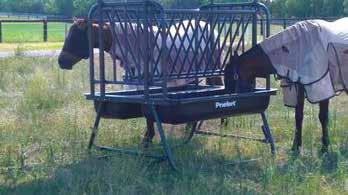
























TERESA YOUNG Special to the Herald
Joe McFerrin has been farming with his family since he was a preteen, even working at an area cotton gin at age 13. As a third-generation grower in southwest Hale County, he’s seen the highest and lowest of life as a cotton farmer.
Unfortunately, this year is among the lows in his 50-plus years of farming.
“It’s been pretty dismal,” he said of the cotton crops that are part of his 2024 season. After skipping the crop in 2023 to rotate and prepare the land, McFerrin said this year’s conditions just did not add up to great success for most cotton farmers.
“Cotton has been the mainstay but we’ve grown milo, corn and wheat and run cattle all this time too. Now we grow a little pickles and black-eyed
peas,” he said. “Through the years, cotton has always done us good, but the past two or three years we have had less cotton. The water table is just depleting and we may not have any this next year.
“It’s the most expensive crop we can grow but one of the cheapest commodities out there. Everyone is hunting something that will make us some money.”
McFerrin’s words are echoes of many area growers who continue to face years of drought, lowering water tables and increasing costs of the products and machinery needed to run a farm.
Still, he’s had a longtime love for the land and is grateful he can hand it off to the fourth and fifth generations as he winds down his career in the near future.
“I started farming when I was in high school.
My dad was blinded by anhydrous ammonia at age 39 and I was 10 at the time. I was one of three boys, and I liked to farm, so that’s how I got started,” he said. “I had two granddads who farmed, and I rented a quarter from each one of them. I’ve made 54 crops over the years.”
McFerrin’s daughter, Shelly Berry, and husband Shane are in the process of taking over the family farm, with their son Seth, 22, back from Tarleton and helping in the operation as well. Another son, Sterling, is a sophomore at West Texas A&M and has plans to return to run cattle for the farm.
Though many years have passed, McFerrin can well remember the best year in his farming history: 1973. That year’s bumper crop helped the family pay off notes and set them up for future years of success. But since
another great year in 1977, McFerrin said no farming year has equaled those earlier decades.
“There have been some years better than others, but to us we’ve been in a drought since 2000. Then 2010 was a super wet year, but if you look at the whole span of the last 24 years, it’s been a lot of drought time,” said McFerrin.
The Cotton Center graduate said the family land is not fully irrigated, and he expects the dryland cotton crops to be pretty poor. Some didn’t make it at all, and their land has challenges that make dryland difficult without skipping years.
“That’s the way the old-time wheat farmers did; they would only plant half their acres in wheat, then summer fallow the other, then plant into that. When we make pretty good dryland wheat, that’s what we
end up doing,” he said. “I think that’s what we’ll end up doing with the cotton or milo or whatever; try to store up all the moisture you can. We do a lot of no-till or minimum till and try to plant there next year.”
McFerrin said the cattle part of their operation –primarily mother cows and calf raising to sell to the beef industry – is the one bright spot since cattle are bringing much better prices. They are already planning to put more grass in and grow that aspect of the operation.
But his concern is for the overall industry and where it might be headed with things like tractors going from $10,000 in 1972 to more than $450,000 in the past year along with all other inputs. Conversely, the prices for cotton don’t look much different than what that bumper crop
from ’73 brought in. And that can be bad for everyone.
“If the price is not there, I’m afraid we’ll lose a lot of the infrastructure… the gins, oil mills, compresses. Then how will our schools and cities operate when we run cattle on pasture? What is going to be the revenue of that? When my folks were here in the 20s and 30s, nobody thrived, they just survived. And I see that’s where we’re headed,” he said.
“The consistency of making crops with irrigation was a wonderful time, and I got to see all that. The water table has just gotten so low. It’s sad because I saw the peak, some of the very best times for the economy in this area. It’s going to take more acres for a family to survive now.”
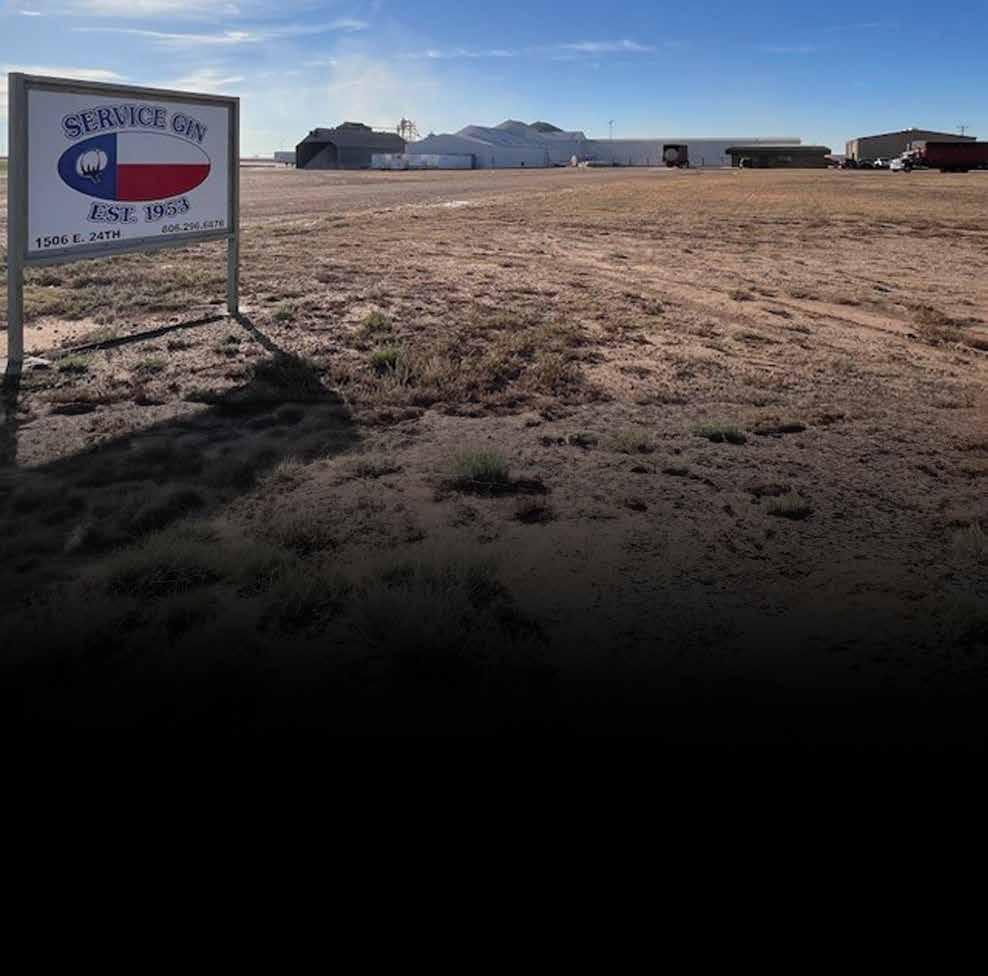











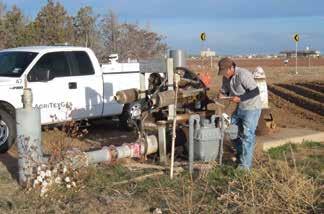
TERESA YOUNG Special to the Herald
Everyone knows farmers work many hours a week, sunup to sundown during the heaviest growing periods and into harvest. And for one Plainview-based company, making sure they
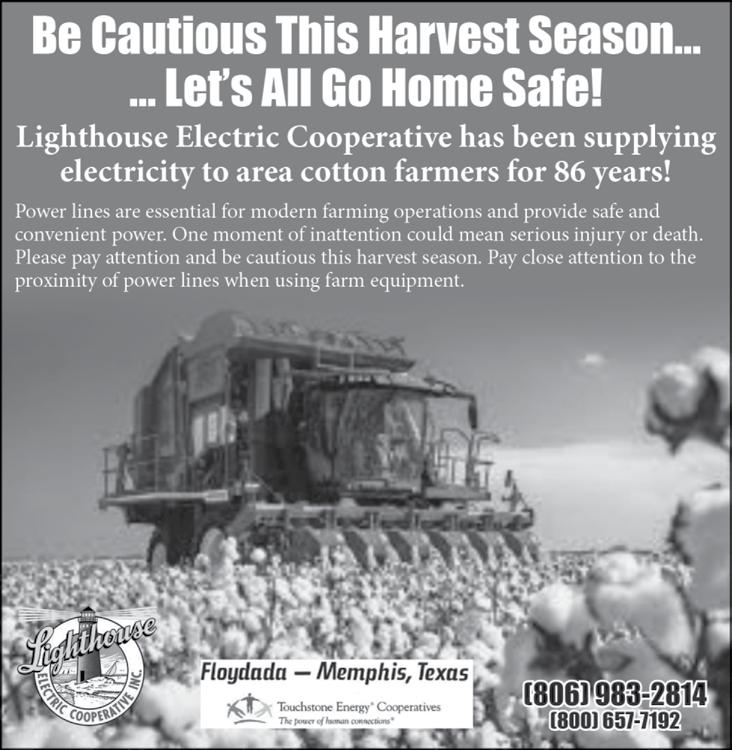
don’t see any down-time is essential.
AgriTexGas was founded in 2009 to serve the rural and irrigation customers in the wide panhandle area with natural gas, reaching north to Dalhart, south to Seminole, east to Daugherty and west to the New Mexico state line.
“We serve a lot of irrigation customers and a few residential properties, a lot of dairies and feedyards too,” said Eliza Ramos, general manager at AgriTexGas. “We serve around 3,200 customers regularly and that stays pretty steady.”
Ramos said the company provides service to existing lines and also handles new builds and new installations for customers in the region. She said natural gas is often preferred since the prices are better for growers who run irrigation wells in high volume during the busy summer months.
“That’s our busiest time of the year,” Ramos said.
AgriTexGas has 15 total employees, with some based in Plainview and other technicians located around the service area in Lubbock, Lockney, Morton, Hereford, Dimmitt and Tulia. Having personnel in various locations helps the customer ultimately because help is never far away when the growers really need their lines serviced.
“That’s especially important in the winter when the lines get frozen and they need to get out and thaw them so they can feed again,” noted Ramos.
Being in the central of agriculture and serving these growers and producers is very important to the company, and Ramos feels that importance.
“Being a natural gas customer myself, I know it helps them. We try to do all we can for them out there and give them options that can help them such as generators and other things that
keep them as happy as we can,” she said. And the local, small-town service is something many appreciate.
“When they call our office, they can speak to someone right here in town, and we love being here for them and keeping them going. It can be tough out there, especially in the winter time when technicians are out there at two in the morning,” Ramos added. “But we are going to be there all the time since we’re a utility.”
AgriTexGas is also committed to safety and public awareness about natural gas, operating and maintaining its pipeline in a safe, environmentally sound manner. They have taken steps beyond laws and industry standards to ensure the safety of those along its route.
For more information about the company, visit www.agritexgas.com.








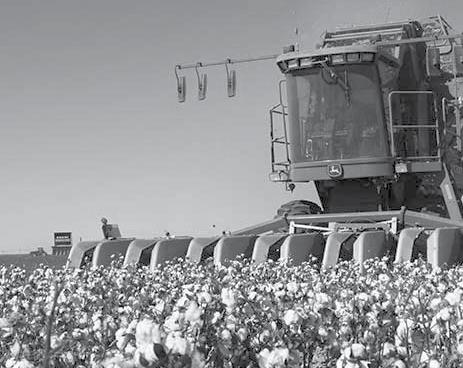



















TERESA YOUNG Special to the Herald
The consensus across those in agriculture is not overly optimistic as the cotton harvest gets underway in the South Plains. But for longtime Floyd County grower Jon Jones, he can always find a way to stay positive.
“I am very blessed. It’s so difficult to get started in farming without being raised in it. It’s so expensive so I’ve been blessed to have had a family doing this,” said Jones, who farms west of Daugherty.
“I’ve been here all my life and am very blessed.”
A fourth-generation farmer, Jones works the land his great-grandfather first worked and lives in the childhood home his parents built in 1963. A 1978 graduate of Floydada High School, Jones followed his father and brother to West Texas State University, graduating in 1982 and returning to the family farm.
Jones said he grows primarily cotton and wheat with some limited irrigation land. He also rotates with wheat and
grazes cattle on wheat, also running a cow-calf operation.
“Cotton is king is pretty true for us, and that’s been our bread and butter for years,” he said. “Irrigation never was strong but really the water has dropped everywhere. Cotton is about the most heat tolerant crop and can get by with lesser amounts of water. It can handle drought better than others. But when you have high drought in July nothing works.”
Heading into harvest soon, even overly optimistic Jones is realistic about the outcome.
“The whole area crop is short. It’s really simple… excessive heat and lack of rainfall hurt us. The whole area has had it for three years in a row, and it’s nothing new,” she said. “The rough deal of this is all the infrastructure –the gins, the oil mills, the truckers – it hurts all of them. We have multi-peril crop insurance that helps us but they don’t have the same thing. So this is far-reaching.”
Jones said the area was



more optimistic in the early planting season due to the winter snowfall and early spring rains that set up the groundwater in good condition.
“We had an excellent wheat crop, so that was a blessing. We had good moisture in May and June, and the cotton looked so good,” he recalled. “Then when it got so hot in July, our irrigation couldn’t keep up with it. I water supplementally really, and we still have to have natural rain.”
Besides the family land he farms, Jones said he rents land from area owners and treats it all the same way, wanting to get the best return on investment for himself and his customers. While they understand the rising cost of inputs and dwindling water are critical concerns, they still expect a profit. And he doesn’t blame them.
Part of that practice includes a strong belief in crop rotation to build up the soil profile for the following year. But there are many obstacles to overcome in recent years.
“That’s what is so heartbreaking. We had a profile in May that looked so good. But in July and August it just literally cooked. The bolls are small and the fiber quality is poor. What is left didn’t mature and fill out to its potential,” he said.
“Our dryland cotton probably won’t be harvested this year at all since it’s so bad. But that hurts the infrastructure so badly, and I hate that. That hurts our insurance since it works off a 10year production history. Three years of taking low yields means our premiums will be higher with less coverage. It’s very difficult for everyone,” he explained.
Despite the ongoing challenges, Jones still feels extremely blessed to have enjoyed working the family land for so long. He praised two longtime workers -- one serving 30 years, another 27 years – as being incredible blessings since he doesn’t have sons coming behind to take over the farm.
He has one stepdaughter with wife Brenda, a speech pathologist in

Lubbock.
“I have some good helpers for harvest, but we’re all getting older. I know our days of running the old stripper and basket are numbered. I can’t brag enough about our help. They are like family to us and I can’t do this without them,” he said. “Labor is really the driving force and if we can’t get the labor it’s hard to do this.”
He also praises organizations like Plains Cotton Growers and Cotton,
Inc., for the work they do to promote the industry nationwide and work to impact legislation at every level.
“If we don’t tell our story, someone else will, and it won’t be nearly as accurate. You have to have a voice in your government, and the only way to do that is through money. It takes money to talk to your congressman and senators and let them know the problems we face in agriculture,” he said.



